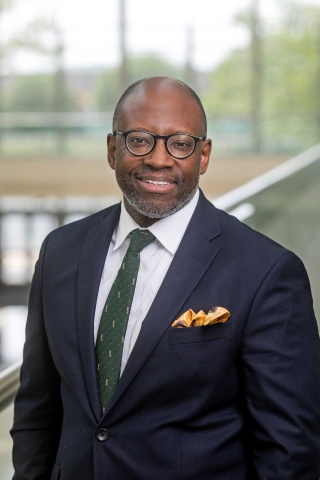The good thing about the market is that it efficiently provides the goods that people want. The bad thing about the market is the same thing. That is why it is imperative that a free market system be nested within a moral culture that is concerned with protecting human dignity and promoting true human flourishing. Much of today's most popular rap music (departing from rap's origins), is a cesspool of lyrics glorifying materialism (“bling bling”), presenting distorted caricatures of authentic masculinity, and dehumanizing women.
Contrary to what some may believe, rap is not a genre peculiar to a black subculture: The Boston Globe reports that over 70 percent of all rap music purchases are by white suburban youth. Rap and hip hop music overall has a listening audience that is 75 percent non-black.
Reference to women as objects of men's sexual fulfillment and the glorification of subhuman lifestyles permeate this diverse world of rap music. Artist 50 Cent in a recent number one hit, “Candy Shop,” sings to a woman that he's going to take her to a candy shop to let her “lick the lollipop.” He then offers to have random sex with her “in the hotel or in the back of the rental.” When they meet, “it's like a race who can get undressed quicker.”
Noted rap star The Game has a top hit, “How We Do,” boasting that he and his friends “act a fool while we up in da' club.” The Game longs to find the right girl so he can, in his words, “put my hand up her dress.” Hip hop star Usher enlists the help of Lil' Jon and Ludacris, in the song “Lovers and Friends,” instructing a young woman “to be a good girl, turn around, and get these whippings, you know you like it like that.” The music videos accompanying these songs are nothing more than soft porn brought to the world via MTV and BET – all the while sponsored by soft-drink giants like Coca Cola.
Are women not outraged by music that animalizes sex, demeans them, and reduces men to stupidity? As a matter of fact, young women comprise over 54 percent of all urban music purchases. The very market that degrades the dignity of women is supported mostly by young women.
Female rappers share part of the blame. Female hipsters like Fantasia, in the chart topping song “Baby Mama,” describes the hardships of single-parenthood but never says a word about sexual responsibility. Lil' Kim in the song “Not Tonight” raps about the sexual domination of men. What would Lil' Kim say to Rosa Parks? “Mrs. Parks, thank you for your courage in the civil rights struggle, so that black women have a chance to be devalued and sexualized by all Americans equally.”
Rap music rules the airways in New York, Los Angeles, Chicago, San Francisco, Dallas, Philadelphia, Washington, D.C., and other major cities. Is it any wonder that sexism and racism “still” exist? With a population of people 13 to 34 years old, of all backgrounds, spending a decade or so digesting the lyrics of animalized thinking and behavior, what else would we expect?
Supply and demand conspire in this evil. Rappers degrade minority women, dehumanize themselves, and promote materialism; white suburban youth and women gobble it up; record companies have no scruples in profiting from the arrangement.
Would Martin Luther King be proud of this? Is this why Harriet Tubman risked her life to lead slaves through the Underground Railroad? The current rap industry owes the civil rights leaders of the 1950s and 1960s a huge apology. Middle class suburbanites should be embarrassed.
The hip hop generation has given rise to a multi-ethnic market of dehumanization that further erodes the fabric of our civil society. Bad rap music will change its content only when Judeo-Christian values concerning God's design for human relationships, sex, and stewardship shape the minds and lives of both the producers and the consumers.



